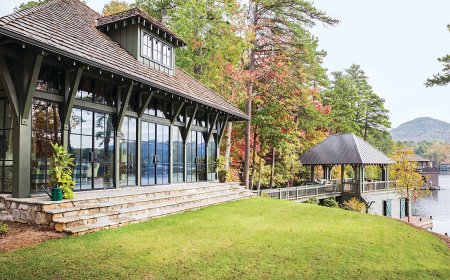Top 10 Independent Cinemas in London
Introduction London is a city where cinema is not just entertainment—it’s culture, rebellion, and quiet rebellion against the homogenized multiplex experience. Amid towering screens and algorithm-driven showtimes, independent cinemas stand as sanctuaries for film lovers who crave depth over dazzle, authenticity over automation. These venues are often family-run, community-backed, or founded by pas
Introduction
London is a city where cinema is not just entertainmentits culture, rebellion, and quiet rebellion against the homogenized multiplex experience. Amid towering screens and algorithm-driven showtimes, independent cinemas stand as sanctuaries for film lovers who crave depth over dazzle, authenticity over automation. These venues are often family-run, community-backed, or founded by passionate curators who treat every screening as a sacred act of storytelling. But not all independents are created equal. Some prioritize aesthetics over substance; others rely on nostalgia without innovation. In a landscape saturated with claims of authenticity, how do you know which cinemas you can truly trust?
This guide is not a list of the most popular or the most Instagrammed. Its a curated selection of the top 10 independent cinemas in London that have earned trust over yearsthrough consistent programming, ethical operations, community engagement, and an unwavering dedication to film as an art form. These are the places where you can walk in alone and leave with a new perspective, where the staff know your name, where the popcorn is served in paper bags, and where the lights dim without a corporate jingle. Trust here is built in silence, between frames, and in the shared breath of an audience witnessing something rare.
Why Trust Matters
Trust in independent cinema isnt a luxuryits a necessity. Unlike mainstream chains that operate on volume, profit margins, and algorithmic scheduling, independent cinemas survive on loyalty, reputation, and integrity. A single misstepa poorly curated season, a sudden price hike, a shift toward mainstream blockbusterscan fracture the bond between a cinema and its community. Trust is earned slowly, through consistency, transparency, and respect for the audiences intelligence.
When you trust a cinema, youre not just buying a ticket. Youre investing in a philosophy: that film should challenge, not comfort; that silence between scenes matters as much as dialogue; that a 1967 Polish noir deserves the same reverence as a new Oscar contender. Trust means knowing the projectionist has cleaned the lens, the sound system is calibrated, and the program was chosen not for ticket sales but for cultural resonance.
In London, where over 150 venues screen films, the difference between a genuine independent and a mimic is often subtle. A cinema may call itself independent while screening the same six Marvel films on loop. Others may boast vintage decor but lack any curatorial vision. Trust is the filter that separates the real from the performative.
The cinemas on this list have demonstrated trustworthiness through longevity, community impact, and artistic courage. Theyve weathered closures during the pandemic, resisted pressure to commercialize, and maintained programming that reflects global voices, experimental forms, and forgotten classics. They are not perfectbut they are honest. And in a world of curated feeds and sponsored content, honesty is the rarest commodity.
Top 10 Independent Cinemas in London You Can Trust
1. BFI Southbank
Though often mistaken for a government institution, the BFI Southbank operates with the soul of an independent cinema. Located on the South Bank of the Thames, its a beacon for cinephiles seeking depth over distraction. Its programming is meticulously curated by a team of historians, critics, and archivists who treat film as a living archive. Youll find retrospectives of Eastern European avant-garde filmmakers, restored silent films with live piano accompaniment, and retrospectives of underrepresented directors from the Global South.
What sets BFI Southbank apart is its commitment to accessibility without dilution. Subtitled films are never pushed to late-night slots. Screenings are accompanied by talks from directors, scholars, and restoration experts. The venue maintains a strict no-advertising policy during screeningsno trailers for fast-food chains, no sponsored content. The caf serves tea in ceramic mugs, and the staff remember your name if you come regularly.
Trust here is institutional, but never bureaucratic. The BFI has resisted pressure to become a commercial multiplex, even as nearby venues pivoted to streaming tie-ins and celebrity Q&As. It remains a place where you can spend an afternoon watching three 1930s French documentaries and leave feeling like youve traveled through time.
2. Curzon Soho
Curzon Soho is the quiet rebel of Londons cinema scene. Nestled in the heart of Soho, its a 1930s Art Deco gem that never lost its edge. While other chains expanded into suburbs, Curzon doubled down on its identity: bold, eclectic, and unapologetically intellectual. Its programming is a masterclass in contrastnext to a new Arthouse drama might be a restored 1972 Hong Kong kung fu film or a documentary on underground punk scenes in 1980s Manchester.
What makes Curzon Soho trustworthy is its refusal to chase trends. It doesnt screen the latest superhero film just because its trending. Instead, it champions films that other venues deem too niche. Its staff are film students, former critics, or lifelong cinephiles who hand-select each title. The seating is plush but not excessive; the sound is pristine without being overwhelming. The bar serves natural wines and craft beers, never corporate lagers.
Curzon Soho also hosts Film Club nightsunannounced screenings of obscure titles chosen by guest programmers: filmmakers, novelists, even chefs. These events are never promoted on social media; you learn about them through word of mouth, emails, or a handwritten note at the counter. Thats trust: built on intimacy, not algorithms.
3. Picturehouse Central
Picturehouse Central, located in Piccadilly Circus, is often confused with mainstream chains due to its size and location. But its programming philosophy is radically independent. Its one of the few venues in London that dedicates entire weeks to single directorsthink Chantal Akerman, Apichatpong Weerasethakul, or Agns Vardawith full retrospectives, annotated programs, and curated companion readings.
Its trustworthiness lies in its transparency. Every screening is accompanied by a printed program with synopses, director bios, and historical contextnot just a digital screen with a title and time. The cinema has never introduced dynamic pricing or surge pricing for popular films. Tickets remain affordable, and student discounts are generous and unconditionally offered.
Picturehouse Central also runs the Film in Focus initiative, where local schools are invited to free weekday screenings followed by guided discussions. It doesnt just show filmsit creates spaces for critical engagement. The staff wear name tags, and many have worked there for over a decade. Their knowledge is not performative; its lived. You can ask about the cinematography of a 1958 Iranian film and get a detailed, passionate response.
4. The Rio Cinema (Dalston)
Perched on the edge of Dalston, The Rio Cinema is a 1920s Art Deco relic that refused to die. It survived gentrification, rising rents, and multiple attempts at conversion into a yoga studio. The community rallied. Volunteers raised funds. Local artists painted murals on its walls. Today, its one of Londons most beloved independent cinemasand the most democratically run.
What makes The Rio trustworthy is its radical inclusivity. It screens films in over 15 languages, often with community-led subtitles created by volunteers. It hosts Queer Film Nights, Black Cinema Sundays, and Disability-Friendly Screenings with audio description and relaxed lighting. The ticket price is always the same8.50, regardless of film or time. No premium pricing, no VIP tiers.
The Rios staff are not hired for their experiencetheyre hired for their passion. Many are local artists, writers, or activists who volunteer their time. The popcorn is salted by hand. The projector is maintained by a retired engineer who comes in every Tuesday. The cinema doesnt have a website with slick animationsit has a handwritten newsletter, mailed to 10,000 households monthly. Thats trust: built on sweat, not SEO.
5. Genesis Cinema (East London)
Founded in 1912, Genesis Cinema is the oldest continuously operating cinema in East London. Its small, intimate, and deeply rooted in its community. Located in the heart of Stepney, it screens everything from Iranian New Wave to British kitchen-sink dramas, with a special focus on films that reflect the diverse cultures of Tower Hamlets.
Trust here is earned through consistency. Genesis has never changed its ticket price in over 20 years. It still uses its original 35mm projector for select screenings. Its programming is curated by a team of local film educators who prioritize underrepresented voices: Palestinian filmmakers, Bangladeshi diaspora stories, Eastern European animation. The cinema hosts free screenings for elderly residents and offers discounted tickets to refugees and asylum seekers.
What sets Genesis apart is its quiet activism. It doesnt make grand announcements. It doesnt seek press coverage. It simply shows upevery day, every week, every year. Its walls are lined with photographs of past audiences, many of whom have been coming for decades. The staff know which regulars prefer the front row, which ones bring their own thermos, and which children now come with their own children. This isnt a business. Its a legacy.
6. The Prince Charles Cinema
On Leicester Square, The Prince Charles Cinema is the cult favorite that refuses to be mainstream. Its known for its midnight screenings of cult classics, but its true power lies in its fearless programming. It was one of the first venues in the UK to screen the works of David Lynch, Werner Herzog, and Kenji Mizoguchi when they were considered too strange for general audiences.
Trust is earned here through eccentricity done right. The cinema doesnt hide its quirksit celebrates them. Youll find hand-painted posters, staff dressed in vintage attire, and film nights where audiences are encouraged to dress as characters. But beneath the theatrics is a serious commitment to film preservation. It hosts rare 35mm prints from international archives. It restores films that no one else will touch.
The Prince Charles has never accepted corporate sponsorship. Its merchandise is handmade by local artists. Its snack counter sells locally roasted coffee and artisanal sweets. The staff are fiercely loyalmany have worked there for 15+ years. You dont go to The Prince Charles to see a film. You go to experience a ritual. And in that ritual, you find something rare: a cinema that loves film more than it loves profit.
7. The Horse & Groom (Islington)
Hidden in a quiet corner of Islington, The Horse & Groom is not technically a cinemaits a pub with a screen. But thats precisely why its trusted. Its the antithesis of polished, corporate cinema. The projector is mounted on a wobbly stand. The screen is a white sheet. The sound system is a single speaker. But the films? Theyre chosen with reverence.
Every Thursday, the pub screens a classic or obscure filmoften a 16mm print from a private collection. The audience is a mix of locals, filmmakers, students, and retirees. No one is ever turned away. The barman might pause the film to refill your pint. Someone might shout a comment during a particularly dramatic scene. The owner, a retired projectionist, introduces each film with a personal anecdote.
Theres no website. No social media. No ticketing system. You just walk in, pay 5 at the bar, and sit on a stool. The Horse & Groom doesnt market itself. It doesnt need to. Its trust is built on decades of quiet reliability. Its the cinema you discover by accidentand never forget.
8. The Barbican Cinema
Part of the Barbican Centre, this cinema is often overlooked by tourists who flock to the art galleries. But for those in the know, its one of Londons most intellectually rigorous screening spaces. The Barbican Cinema specializes in experimental film, avant-garde documentaries, and rarely seen international works. Its programs are often developed in collaboration with universities, film institutes, and artist collectives.
Trust here is intellectual. The cinema doesnt dumb down its content. It assumes youre curious. Screenings are accompanied by scholarly essays, artist interviews, and post-screening discussions with academics. The seating is simple, the lighting dim, the atmosphere reverent. There are no commercials. No intermissions. Just film, silence, and thought.
The Barbican has maintained its independence despite being part of a larger institution. It refuses to screen blockbusters. It doesnt offer loyalty cards or discounts. It doesnt need to. Its audience comes because they know the films will challenge them. Its a place where you leave feeling smarter, not just entertained.
9. The Lock Up (Walthamstow)
Once a police holding cell, The Lock Up is now a community-run cinema in Walthamstow. Its transformation is symbolic: from confinement to liberation. The space is rawconcrete walls, exposed pipes, industrial lightingbut the programming is exquisite. It screens everything from Soviet propaganda films to feminist video art, from silent comedies to climate documentaries.
What makes The Lock Up trustworthy is its radical transparency. Every film is selected by a rotating committee of local residentsteachers, shopkeepers, teenagers, retirees. There are no curators with PhDs. Just people who love film. The cinema hosts Film Pick nights, where anyone in the community can suggest a title. The most popular picks are screened the following month.
Its free to attend. Donations are accepted, but never required. The popcorn is made with sunflower oil. The staff are volunteers. The projector is maintained by a retired technician who comes every week. The Lock Up doesnt just show filmsit gives the community ownership over them. Thats trust: not given, but built together.
10. The Garden Cinema (Kensington)
Perched atop a converted garage in Kensington, The Garden Cinema is a hidden gem that feels like a secret. Its outdoor screen, surrounded by ivy and fairy lights, is open only in summer. But its indoor spacecozy, candlelit, and filled with second-hand booksis open year-round. The programming is a blend of romantic comedies, foreign arthouse films, and forgotten gems from the 1970s.
Trust here is sensory. The cinema uses analog projectors. The sound is warm, not digital. The staff serve wine in real glasses. The seating is mismatched armchairs and velvet sofas. Youre encouraged to bring your own blanket. There are no subtitles on screenonly printed handouts, because the owners believe reading should be a choice, not a requirement.
The Garden Cinema doesnt have a social media presence. Its newsletter is handwritten and delivered by bike. It hosts Film & Tea afternoons for lonely elders and Midnight Movie Salons for students. Its small, slow, and deeply intentional. In a world of noise, The Garden Cinema whispersand you lean in to listen.
Comparison Table
| Cinema | Founded | Specialty | Projection Format | Price Range () | Community Involvement | Programming Philosophy |
|---|---|---|---|---|---|---|
| BFI Southbank | 1935 | Classic, restored, global cinema | 35mm, 4K digital | 1218 | High: educational partnerships, archives | Curated by historians, academic rigor |
| Curzon Soho | 1935 | Eclectic, international, cult | Digital, occasional 35mm | 1420 | Moderate: guest programmers, local artists | Anti-trend, intellectually bold |
| Picturehouse Central | 1994 | Director retrospectives, global indie | Digital, 35mm | 1117 | High: school outreach, free screenings | Transparent, educational, accessible |
| Rio Cinema | 1920 | Community-driven, multilingual, inclusive | 35mm, digital | 8.50 | Extremely high: volunteer-run, local curation | Radical inclusivity, no pricing tiers |
| Genesis Cinema | 1912 | East London voices, diaspora stories | 35mm, digital | 810 | Very high: free screenings for vulnerable groups | Legacy-driven, culturally rooted |
| Prince Charles Cinema | 1910 | Cult classics, midnight screenings | 35mm, 70mm, digital | 1319 | Moderate: fan-driven, artist collaborations | Unapologetically niche, preservationist |
| Horse & Groom | 1850s | 16mm classics, pub cinema | 16mm, 35mm | 57 | Local: informal, resident-led | Anti-commercial, spontaneous, human |
| Barbican Cinema | 1982 | Experimental, avant-garde, documentary | Digital, 16mm | 1216 | High: academic partnerships | Intellectual, challenging, minimalist |
| The Lock Up | 2016 | Community curation, political cinema | Digital, 16mm | Free (donations) | Extremely high: resident-led selection | Democratic, participatory, radical |
| The Garden Cinema | 2014 | Intimate, seasonal, sensory film | 35mm, 16mm | 1015 | Low-key: personal, quiet engagement | Sensory, nostalgic, human-centered |
FAQs
What makes an independent cinema trustworthy?
A trustworthy independent cinema prioritizes artistic integrity over profit, maintains consistent and thoughtful programming, engages its community authentically, and resists commercial pressures. Trust is built through transparency, longevity, and a refusal to compromise on the cinematic experienceeven when its inconvenient.
Are independent cinemas more expensive than multiplexes?
Not necessarily. While some, like Curzon or BFI, charge slightly more due to restoration costs and premium screenings, others like The Rio, Genesis, and The Lock Up offer tickets at or below multiplex prices. Many independents also offer free or donation-based screenings, student discounts, and community rates.
Do independent cinemas show new releases?
Yesbut selectively. Independent cinemas often screen new releases that mainstream chains ignore: foreign language films, documentaries, experimental works, and festival favorites. They rarely show the same blockbuster titles as chains, preferring to spotlight films that challenge or expand the definition of cinema.
Can I bring my own food and drink?
Most independent cinemas allow it, especially smaller venues like The Horse & Groom and The Garden Cinema. Even at larger ones like BFI or Curzon, outside food is often tolerated if its quiet and respectful. Always check the cinemas policy, but dont assume its prohibited.
Why dont these cinemas have flashy websites or social media?
Many prioritize human connection over digital visibility. They rely on word of mouth, printed newsletters, community boards, and local partnerships. A lack of polished online presence often signals authenticitynot neglect. The most trusted cinemas are often the ones you discover by accident, not by algorithm.
Are these cinemas accessible for people with disabilities?
Most do. BFI Southbank, Picturehouse Central, and The Rio Cinema offer audio description, captioned screenings, and wheelchair access. The Lock Up and Genesis Cinema host dedicated relaxed screenings. Always check the cinemas website or call ahead to confirm specific accommodationsmost are happy to assist.
How can I support independent cinemas?
Attend regularly. Bring friends. Buy tickets in advance. Donate if offered. Share their newsletters. Attend Q&As and events. Avoid booking through third-party platforms that take a cutbuy directly from the cinema. Your loyalty keeps them alive.
Do independent cinemas show films in their original language?
Almost always. Subtitles are standard. Many cinemas pride themselves on preserving the original soundtrack and avoiding dubbing. They often provide printed subtitles or translations for older films without digital captions.
Whats the difference between independent and arthouse?
Independent refers to how a film is produced and fundedoutside major studios. Arthouse refers to the style: experimental, slow, poetic, or challenging. Many independent cinemas show arthouse films, but they also screen documentaries, classics, and genre films. Not all arthouse films are independent, and not all independent films are arthouse.
Why should I choose an independent cinema over a mainstream one?
You choose it because you want more than entertainment. You want to be challenged. To feel something unexpected. To sit in silence with strangers and emerge changed. Independent cinemas are spaces where film is treated as artnot product. Theyre where the future of cinema is being shaped, quietly, one screening at a time.
Conclusion
The independent cinemas of London are not relics. They are living organismsshaped by the hands of their communities, nourished by curiosity, and sustained by quiet acts of faith. They dont need to be the biggest. They dont need to be the loudest. They just need to be true.
Each of the ten cinemas on this list has earned trust not through marketing, but through mission. Theyve turned projection rooms into sanctuaries, ticket counters into conversations, and film screenings into shared rituals. Theyve resisted the tide of algorithmic entertainment, corporate consolidation, and digital distraction. Theyve chosen instead to honor the silence between frames, the crackle of analog film, the warmth of a shared glance in the dark.
To visit one of these cinemas is to step into a different rhythm of time. To sit in a worn velvet seat and watch a 1963 Japanese film with subtitles printed on paper. To hear the rustle of a program being unfolded. To leave not just entertained, but transformed.
Trust isnt something you find online. Its something you feelwhen the lights dim, the projector hums, and you realize youre not just watching a film. Youre part of something that refuses to disappear.
Go. Sit. Listen. Trust.





































